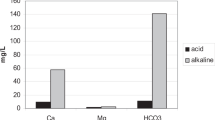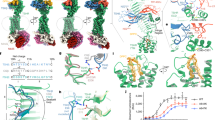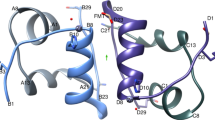Abstract
THE ‘hexuronic acid’ prepared from suprarenal glands by Prof. Szent-Györgyi was a cream-coloured micro-crystalline powder, m.p. 184°–187° (decomp.). On recrystallisation from methyl alcohol-ether the substance was obtained in irregular aggregates of rectangular crystals, which were almost colourless. No change in m.p., analysis, or other properties was observed even after several successive crystallisations. The crystals showed brilliant colours when observed between crossed nicols in a polarising microscope. Before and after recrystallisation the same analytical figures were obtained (Found: C, 41.0; H, 4.7. C6H8O6 requires C, 40.9 ; H, 4.5 per cent). Neither nitrogen nor methoxyl was present. In aqueous solution the rotation [a]20°D +23° (c. 1.1) increased slowly to +31° (3 days) and then decreased to zero (11 days).
This is a preview of subscription content, access via your institution
Access options
Subscribe to this journal
Receive 51 print issues and online access
$199.00 per year
only $3.90 per issue
Buy this article
- Purchase on Springer Link
- Instant access to full article PDF
Prices may be subject to local taxes which are calculated during checkout
Similar content being viewed by others
Author information
Authors and Affiliations
Rights and permissions
About this article
Cite this article
HIRST, E., REYNOLDS, R. Hexuronic Acid as the Antiscorbutic Factor. Nature 129, 576–577 (1932). https://doi.org/10.1038/129576c0
Issue Date:
DOI: https://doi.org/10.1038/129576c0
This article is cited by
-
The Absorption Spectrum of Hexuronic Acid
Nature (1932)
Comments
By submitting a comment you agree to abide by our Terms and Community Guidelines. If you find something abusive or that does not comply with our terms or guidelines please flag it as inappropriate.



